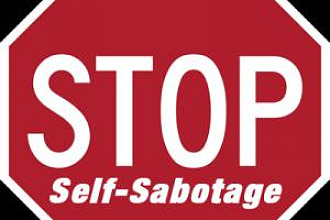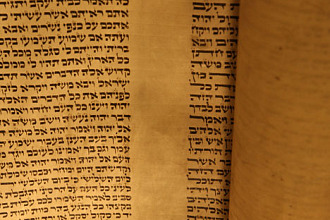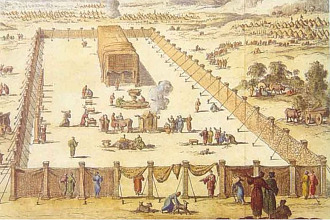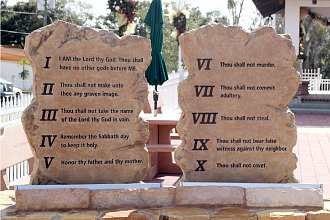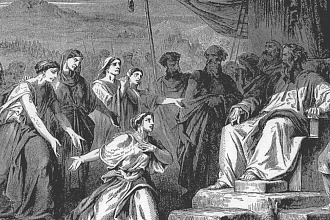Parasha for the Week: Tzav: Leviticus 6:1 – 8:36
Aftarah for the Week: Jeremiah 7:21 – 9:23
Besorat Yeshua: Romans 12: 9 - 15
Overview
The Torah addresses Aharon and his sons to teach them additional laws relating to their service.
The ashes of the burnt sacrifices are to be removed from the area by the kohen (priest) after he changes his special linen clothing.
The olah (burnt offering) is brought by someone who forgot to perform a positive commandment of the Torah.
The fire on the altar must be kept constantly ablaze.
Blood and fat are never to be eaten.
Aharon and his sons are granted the breast and shank of every sacrifice.
The inauguration ceremony for Aharon, his sons, the Mishkan and all of its vessels is detailed.
"Don't Cause Discomfort"
The Torah states: "And the Lord spoke to Moshe saying: Speak to Aharon and his sons, saying: This is the Law of the Transgression Offering, in the place where the Burnt Offering is slaughtered shall the Transgression Offering be slaughtered before the Lord; it is most holy." (Leviticus 6:17-18) The Talmud (Yerushalmi Yevomot 8:3) explains that both the regular daily sacrifices and the person's individual transgression offering were offered in the same place in the Sanctuary to save from embarrassment those people bringing an offering to atone for their wrongdoings; anyone witnessing the event could assume that the sacrifice was brought as a donation and not necessarily as an atonement for a transgression. We must be very careful not to cause someone embarrassment or discomfort because of past misdeeds.
"Pray for Peace"
The laws of the sacrifices in the Parsha end with the "Shelamim" sacrifice. Shelamim comes from the word Shalom-peace. Besides being offered on the altar, parts of the Shelamim were also shared between the Kohanim (priests) and the person who brought the sacrifice. Because the Torah concludes the laws of sacrifices with the Shelamim, our sages tell us, "Great is peace, for the Torah ends the laws of sacrificing with the sacrifice of Shelamim (peace offering)." May we indeed be blessed with everlasting peace.
Haftara: Jeremiah 7:21 – 9:23
G-d speaks to the prophet Jeremiah just before the destruction of Jerusalem, saying to the people of Israel that he prefers obedience rather sacrifice: "Thus says the L-RD of hosts, the God of Israel: ...Obey my voice, and I will be your G-d, and you shall be my people; and walk only in the way that I command you, so that it may be well with you." (Jeremiah 7:21-23). "Yet they did not obey or incline their ear ...For the people of Judah have done evil in my sight" (Jeremiah 7:24; 30). That's why G-d allows Babylon to come and to pun-ish Israel for her sins "Therefore I will give their wives to others and their fields to conquerors" (Jeremiah 8:10).
"I will make Je¬rusalem a heap of ruins, a lair of jackals; and I will make the towns of Judah a desolation, without inhabitant." (Jeremiah 9:11). "I will scatter them among nations that neither they nor their ancestors have known; and I will send the sword after them, until I have consumed them" (Jeremiah 9:16). What about us today? It is good to read what hap-pened three thousand years ago but only if we receive the lessons that the L-rd wanted to give us for today. Are we faithful to our covenant and our commitment? It is a question for each one of us.
It is interesting that this haftara portion of sin and destruction is coupled with the Torah portion which speaks of sacrificial offerings and peace. It is the sacrificial offerings that granted us forgiveness for our sins and brought us peace from our guilt. Today we don't need to bring the blood of lambs and goats as sacrificial offerings to have our sins forgiven because our Messiah, the lamb of God, has already given Himself as our sacrifice.
Besorat Yeshua: Romans 12:9 - 15
One of the sacrifice offered by the priests in the text of the parasha is the shelamim, sacrifice of "well-being" or peace offering, the word shelamim come the same root of shalom. It is important for G-d that is children feel well, feel at peace.
At various occasions Yeshua healed or blessed people and said to them, "Your faith has saved you; go in peace" (Luke 7:50). "Let love be genuine; hate what is evil, hold fast to what is good; love one another with mutual affection; outdo one another in showing honor. ... Contribute to the needs of the saints; extend hospitality to strangers. Bless those who persecute you; bless and do not curse them. Rejoice with those who rejoice, weep with those who weep. " (Rom. 12:9-15). Shaul invites us to love, to hold what is good, to have affection for one another etc... it only that way we will get peace in our heart.
Purim and Vegetarianism (published in Jerusalem Post on March 18th, 2008)
There are many connections between vegetarianism and the Jewish festival of Purim: According to the Talmud, Queen Esther, the heroine of the Purim story, was a vegetarian while she lived in the palace of King Achashverosh. She was thus able to avoid violating the kosher dietary laws while keeping her Jewish identity secret.
During Purim it is a mitzva to give mat'not evyonim - added charity to poor and hungry people. In contrast to these acts of sharing and compassion, animal-based diets involve the feeding of over 70 percent of the grain in the United States to animals, while an estimated 20 million people elsewhere die of hunger and its effects annually.
During the afternoon of Purim, Jews have a seuda - special festive meal - when family and friends gather to rejoice in the Purim spirit. Serving only vegetarian food at this occasion would enable all who partake to be consistent with Jewish mandates to preserve health, protect the environment, share with hungry people, conserve resources, and treat animals with compassion (as well as the vegetarian practices of Queen Esther).
Jews make noise with groggers and other noisemakers, to drown out the infamous name of Haman when it appears during the reading of the Megila. Today, vegetarians are "making noise" in attempting to educate people and drown out the very well-funded propaganda of the beef and dairy industries.
On Purim, Jews emphasize unity and friendship by sending gifts of food - shalach manot - to friends. Vegetarians act in the spirit of unity and concern for humanity by having a diet that best shares the earth's abundant resources.
Because Purim commemorates the deliverance of the Jewish people, it is the most joyous Jewish holiday. By contrast, animals on factory farms never have a pleasant day, and millions of people throughout the world are too involved in trying to obtain their next meal to be able to experience many joyous moments.
Mordechai, one of the heroes of the Purim story, was a nonconformist. As the Book of Esther states, "...And all of the king's servants... bowed down and prostrated themselves before Haman... But Mordechai would not bow down nor prostrate himself before him" (Esther 3:2). Today, vegetarians represent non-conformity. At a time when most people in the wealthier countries think of animal products as the main part of their meals, when McDonald's and similar fast food establishments are still popular, vegetarians are resisting and insisting that there is a better, healthier, more humane diet.
Purim commemorates the deliverance of the Jews from the wicked Haman. Today, vegetarianism can be a step toward deliverance from modern problems such as hunger, pollution, and resource scarcities.
Purim commemorates the time when conditions for the Jews changed from sorrow to gladness and from mourning to festival. Today, a switch to vegetarianism could result in similar changes for many people, since plant-based diets would reduce health problems, pollution, water scarcities, and hunger...
Hamantashen, the primary food associated with Purim, is a vegetarian food...
Richard H. Schwartz, the writer is professor emeritus, College of Staten Island, NY and author of Judaism and Vegetarianism among other works. www.JewishVeg.com
(This above article, written by Richard Schwartz, is included because of it's interesting comparison with the story of Esther and in light of the talmudic belief that Esther was a vegetarian (like Daniel) to avoid eating the unclean foods of the kings table. While it is the belief of this editor that a vegetarian diet is the healthiest and best, it is acknowledged that the Bible does permit eating the flesh of Biblically clean animals as long as the blood and fat is completely removed).
Richard-Amram Elofer




